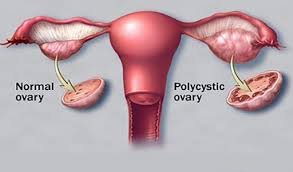Today, almost 24% of Indians struggle with stress. It can be due to work, family, career, and
whatnot! However, if you are looking to conceive in the near future, you must do it. This is
because stress can have a negative impact on both men’s and women’s reproductive health.
While there are several treatment options for infertility, understanding the cause always helps. In
this article, we are here to tell you everything you must know about stress and infertility. Take a
look!
Stress And Its Effects On Reproductive Health
Now let’s take a look at stress and its effects on reproductive health.
Menstrual Irregularities
Chronic stress can lead to changes in the menstrual cycle. This can cause irregular periods or
even amenorrhea, which is the absence of menstruation. Stress may also affect the functioning
of the hypothalamus and pituitary glands, disrupting the hormonal balance necessary for normal
menstrual cycles.
Fertility Issues
Stress has been associated with reduced fertility in women. Too much stress can interfere with
ovulation, which makes it more difficult to conceive.
Stress-induced hormonal imbalances may affect the release of luteinizing hormone (LH) and
follicle-stimulating hormone (FSH), both crucial for the menstrual cycle and ovulation.
In men, high stress can affect sperm production and function. It can also decrease testosterone
levels and sperm quality, potentially impacting fertility.
Impact On Sexual Function
Stress can also be a contributing factor to sexual dysfunction. It affects the libido and arousal in
both men and women. Psychological stress may lead to a reduced interest in sexual activity,
impacting overall reproductive health.
Complications With Pregnancy
Stress during pregnancy has been linked to an increased risk of complications, including
preterm birth, low birth weight, and developmental issues in the child.
Chronic stress can activate the body’s stress response, leading to the release of stress
hormones that can influence the developing fetus. So, if you are expecting and stress is
troubling you, take the necessary steps to avoid them.
Altered Hormone Levels
Chronic stress can lead to the dysregulation of various hormones, including cortisol and
adrenaline. These hormonal imbalances can disrupt the reproductive system’s normal
functioning, impacting fertility and overall reproductive health.
Impact On Immune System
When stress becomes prolonged, it can weaken the immune system. It makes you more
susceptible to infections. When it comes to reproductive health, infections can negatively impact
fertility and increase the risk of complications during pregnancy.
Stress Management Techniques
Some of the stress management techniques are given below. You can try them out to help you.
● Practice deep breathing exercises to calm the nervous system.
● Regular exercise has been shown to reduce stress hormones and trigger the release of
endorphins, which are natural mood enhancers.
● You can incorporate mindfulness meditation or guided meditation into your routine.
Mindfulness helps focus on the present moment, reducing anxiety about the past or
future.
● Yoga can be great for stress, which combines physical postures, breath control, and
meditation.
● Make sure you get enough quality sleep. Lack of sleep can contribute to stress.
● Eat a well-balanced diet with a focus on whole foods. Nutrient-rich foods can positively
impact mood and energy levels.
● Keep a journal to express your thoughts and emotions. Writing can help process stress.
● Try to engage in activities you enjoy as a form of self-care. Hobbies and leisure activities
can provide a welcome distraction from stress.
● Find opportunities for humor and laughter. Laughter has been shown to reduce stress
hormones.
● Seek support from mental health professionals, such as psychologists or counselors, if
stress becomes overwhelming.
The Final Word
Stress can be a contributing factor to infertility. However, your doctor can always guide you in
the right direction. Remember that effective stress management often involves a combination of
these techniques and an effort from your end. Explore what works best for you and make stress
relief a part of your lifestyle to promote overall well-being and reproductive health.





